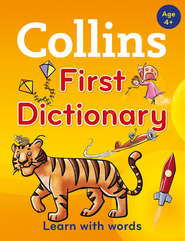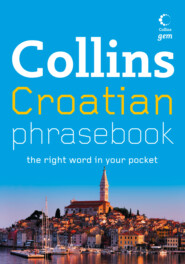По всем вопросам обращайтесь на: info@litportal.ru
(©) 2003-2025.
✖
Easy Learning French Conversation
Автор
Год написания книги
2019
Настройки чтения
Размер шрифта
Высота строк
Поля
How about…?
ASKING FOR INFORMATION (#ulink_5d34fd2b-fd0a-59a7-9d96-d23a79a74189)
When you are travelling around in a French-speaking country or city, you will often need to find out some information to help you get to where you want to go. When you are asking for information you may need to get someone’s attention in order to ask them a question. To do this you can use either excusez-moi or pardon.
I’m looking for…
BON À SAVOIR!
Remember to say merci or merci beaucoup when you get the information. If someone hasn’t been able to help you, you can still thank them by saying merci quand même (thanks all the same).
If you want to ask a general question in French, you can use C’est…? or Est-ce que c’est…? (Is it…?).
Is it…?
Is there…?
BON À SAVOIR!
You can see that both there is and there are are il y a in French.
In order to get more specific information, you may want to ask, for example, Où…? (Where…?), Quel…? (Which…?), or À quelle heure…? (What time…?).
Where…?
Which…?
What time…?
BON À SAVOIR!
When you’re not sure about something, you can ask for confirmation by adding bien after the verb in your question.
If you want to ask how often something happens, how long it takes or how much it costs, you can use a phrase with combien.
How often…?
How long…?
How much is…?
Use Est-ce que je peux…? (Can I…?) or Est-ce qu’on peut…? (Can we…?) to ask whether you can do something. These are from the verb pouvoir. For more information on pouvoir, see here (#litres_trial_promo).
Can I…?
ASKING FOR THINGS (#ulink_6cd523b0-a112-5c9e-93f1-ac160b40d723)
When asking for something, you can use Est-ce que je peux avoir…? (Can I have…?) or Est-ce que je pourrais avoir…? (Could I have…?). These come from the verb pouvoir. For more information on pouvoir, see here (#litres_trial_promo).
Can I have…?
When you want to find out if something is available or if someone has something, use Est-ce que vous avez…? or Vous avez…? (Do you have…?). avez comes from the verb avoir. For more information on avoir, see here (#litres_trial_promo).
Do you have…?
When you ask for something, you can simply name what you want, but make sure you finish your question with s’il vous plaît, or your request might sound rather like an order!
A…, please
If you are asking someone if they can do something for you, you should use Est-ce que vous pouvez…? (Can you…?).
Can you…?
Would you mind…?
SAYING WHAT YOU LIKE, DISLIKE, PREFER (#ulink_d62f591c-cf1a-540d-ad16-5109982b6dac)
You will want to be able to discuss what you like and dislike with your French-speaking acquaintances. To say what you like, use j’aime bien (I like), which is not as strong as j’aime (I love). To say what you don’t like, just use je n’aime pas (I don’t like). These come from the verb aimer. For more information on aimer, see here (#litres_trial_promo).
I like…
I don’t like…
Do you like…?
If you want to say what you prefer, use je préfère (I prefer) or je préférerais (I’d prefer). These come from the verb préférer. For more information on -er verbs like préférer, see here (#litres_trial_promo).
I prefer to…
I’d rather…
LISTEN OUT FOR (#ulink_679bbd5d-03a1-577a-a781-de26df29b313)
Here are some key phrases you are likely to be hear when you’re travelling around.
Lifestyle Tips
• If you’re behind the wheel of a car, be ready to produce your driving licence if asked for it by the police. If you’ve left it behind, you may well be fined. The police officer might ask you: votre permis de conduire, s’il vous plaît (your driving licence, please). French drivers also have to be able to produce their carte grise (car registration document) and their attestation d’assurance (car insurance certificate).
• Motorways are not free in France. When you go onto the motorway, you get a ticket de péage or ticket d’entrée. When you come off the motorway this will show how many kilometres you’ve driven and how much you have to pay.
• At motorway tolls, some toll booths are manned, some are automatic (using bank cards), and some are reserved for drivers using the télépéage system which makes it possible to pay the toll via a sensor inside the car (with monthly bills sent to your address). It is best to stay clear of these lanes which are marked with a yellow “T” sign, as the drivers equipped with such sensors don’t take kindly to tourists holding up their fast lane!
• Over the past years, covoiturage (car sharing) has become quite popular in France. It can be a cheap and convenient way of getting around, especially for short distances. There are many places where you can find offers for covoiturage, but local papers, and ad boards in shops are probably your best bet.
• If you’re asked to produce your titre de transport on the bus, the train or the underground, it means that you have to show your ticket to the inspector.
• Make sure you punch your ticket before you get on the train or bus. If you have forgotten to do so, it is advisable to go and see le contrôleur (the ticket inspector) as soon as possible or you might be fined.











